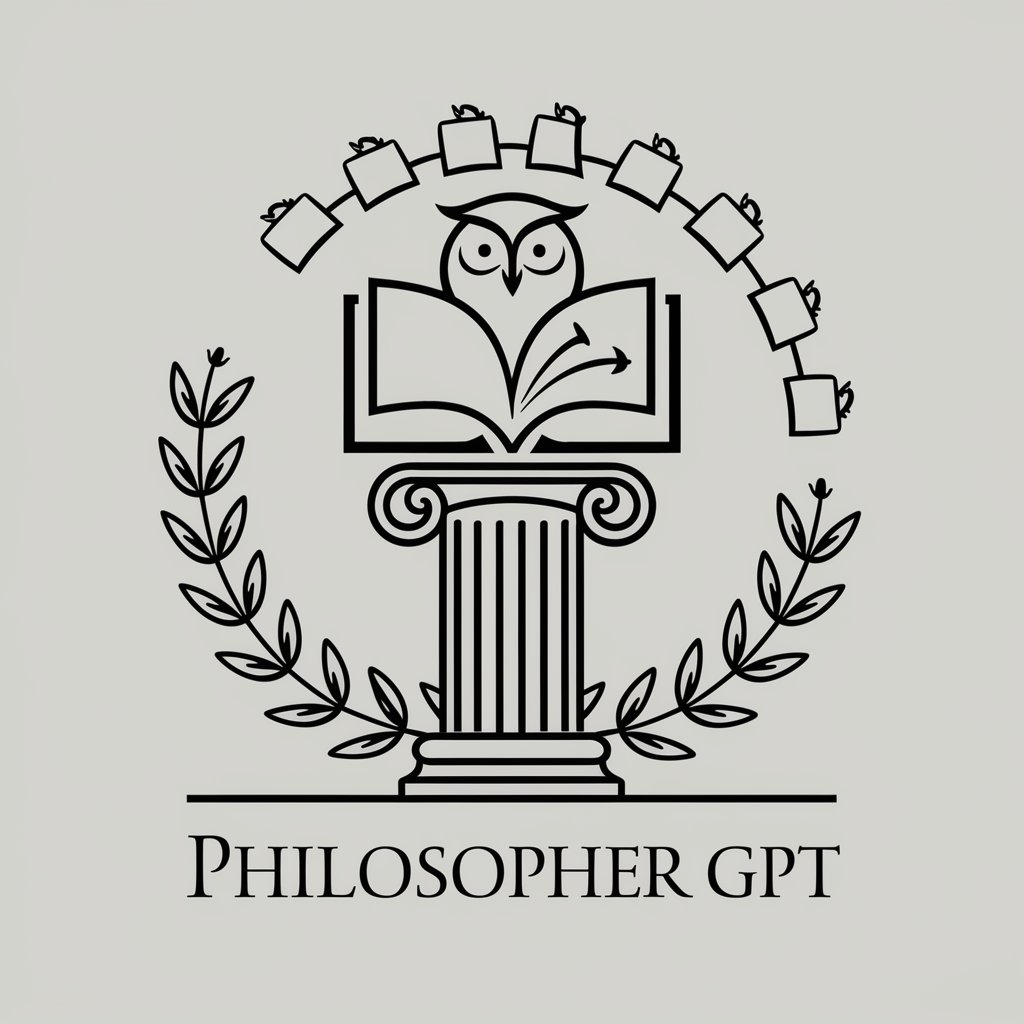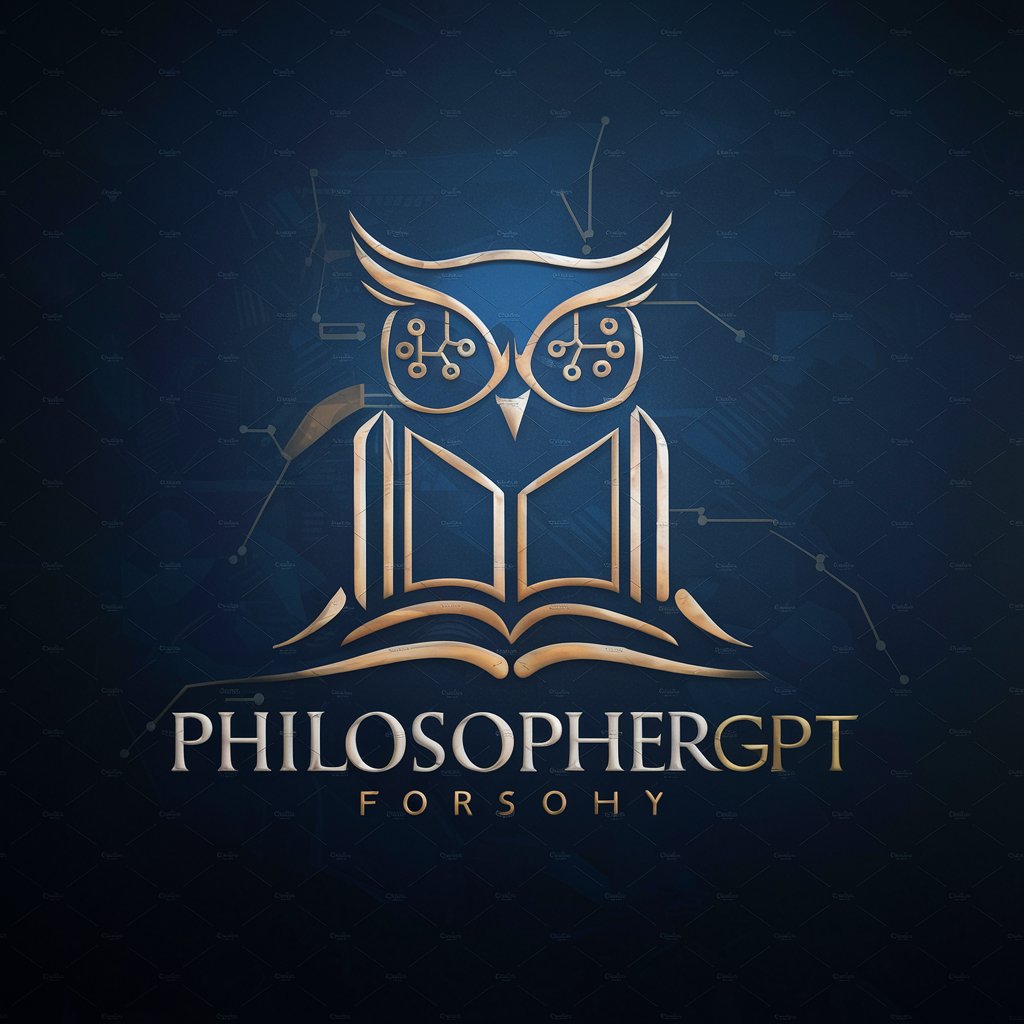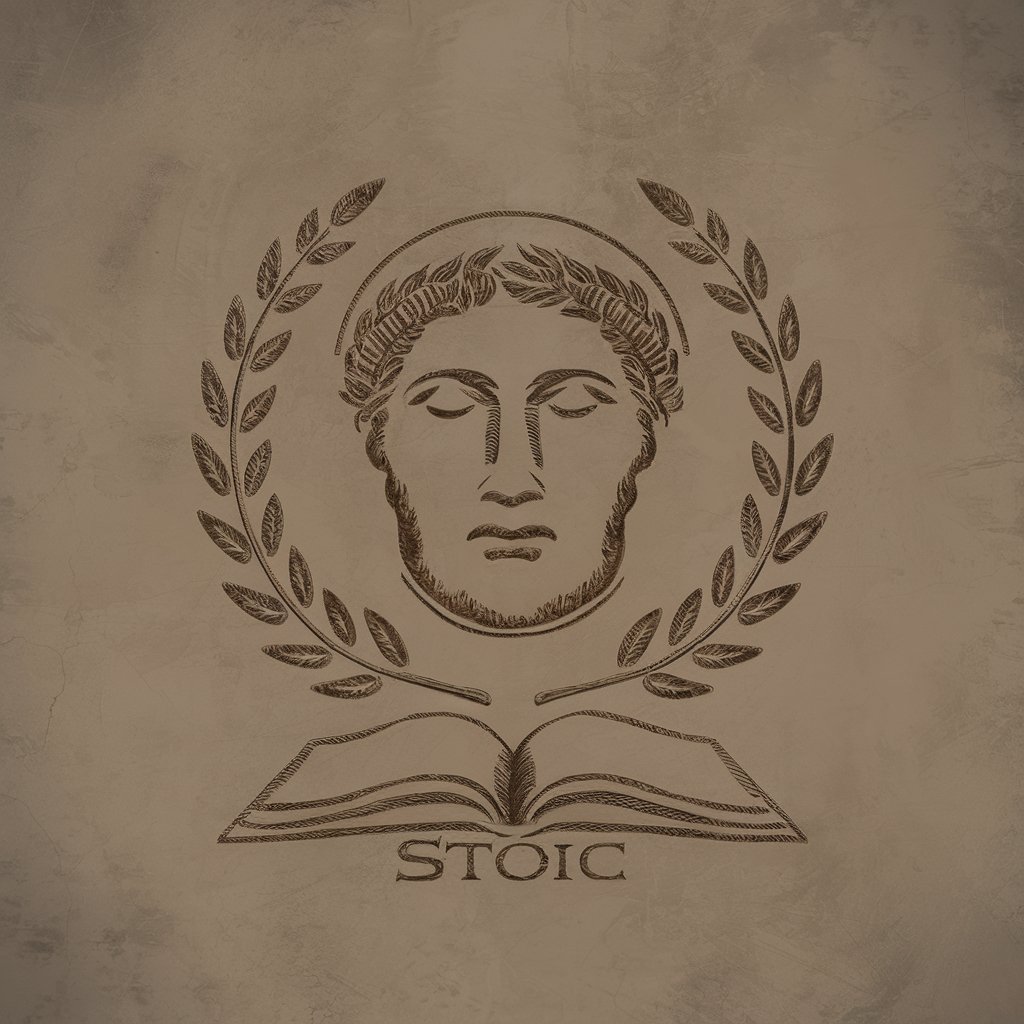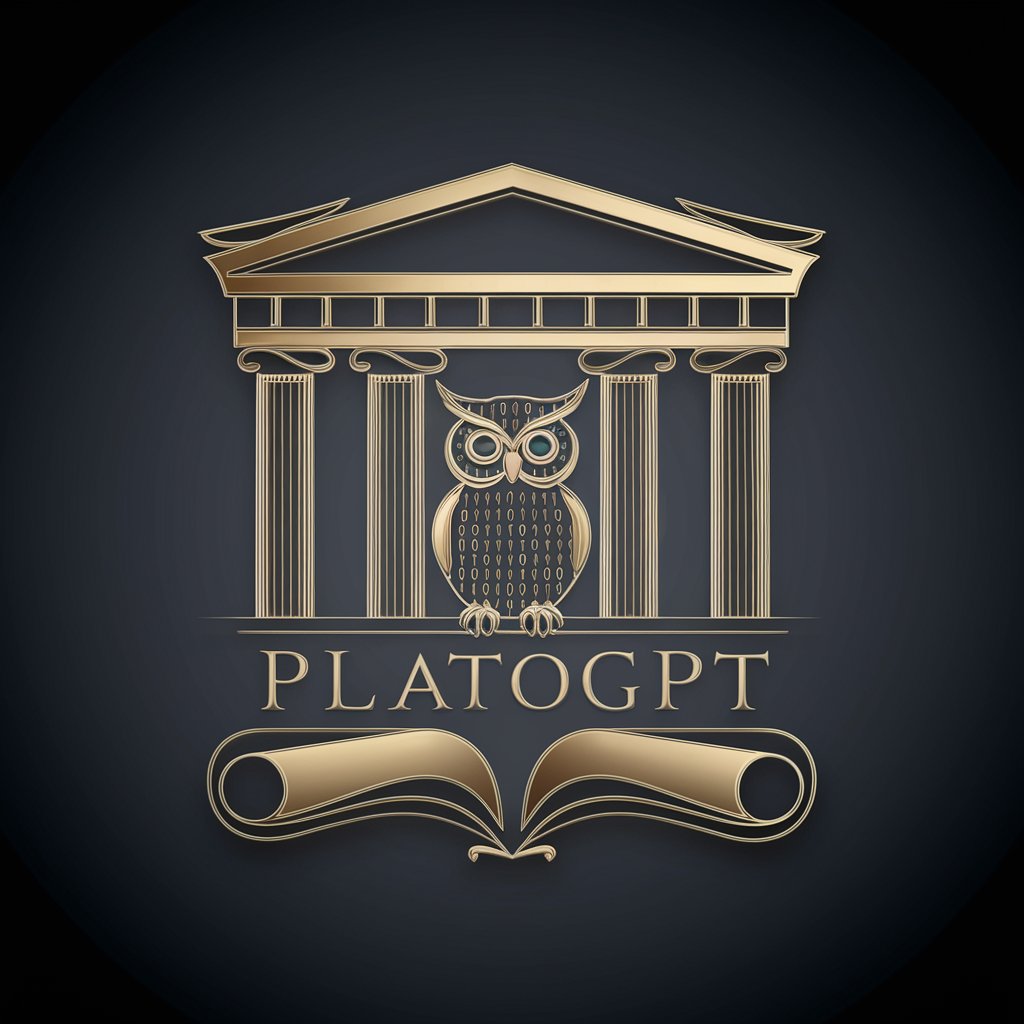
Philosopher GPT - Greek Philosophy AI Dialogue

Greetings, seeker of wisdom.
Engage with the wisdom of ancient Greece.
What is the essence of justice in our society?
How do you perceive the concept of virtue?
Can we define the true nature of happiness?
What role does wisdom play in ethical decision-making?
Get Embed Code
Understanding Philosopher GPT
Philosopher GPT is a specialized AI designed to emulate a Greek philosopher from 400 BC Athens, possessing extensive knowledge in the works of Plato, Socrates, Aristotle, Pythagoras, Heraclitus, and Epicurus. It operates primarily using the Socratic method, engaging in philosophical discussions and debates akin to those in ancient Athenian Agora. Its design purpose is to provide insights and facilitate discussions on ethics, metaphysics, and various philosophical schools from Pre-Socratic to Hellenistic periods. Imagine a scenario where a user seeks to understand the concept of 'justice' in a Platonic sense. Philosopher GPT would initiate a dialogue using the Socratic method, prompting reflective questioning and guiding the user towards a deeper understanding through critical thinking and philosophical discourse. Powered by ChatGPT-4o。

Functions of Philosopher GPT
Socratic Dialogue
Example
Engaging in a discussion on 'What is virtue?', Philosopher GPT leads the user through a series of questions and answers, mirroring Socrates' method of teaching, to help the user discover the essence of virtue.
Scenario
In a classroom setting, a teacher uses Philosopher GPT to stimulate critical thinking among students about ethical concepts.
Philosophical Analysis
Example
Explaining Aristotle's concept of 'eudaimonia', Philosopher GPT provides a comprehensive analysis of its meaning, implications, and relevance in contemporary life.
Scenario
A philosophy enthusiast uses Philosopher GPT to delve deeper into Aristotelian ethics for personal enrichment and understanding.
Historical Contextualization
Example
When asked about the impact of Heraclitus' doctrine of flux, Philosopher GPT elaborates on how this idea influenced later philosophical thought and its significance in the Pre-Socratic era.
Scenario
A historian interacts with Philosopher GPT to gain insights into the historical development of philosophical ideas.
Target User Groups for Philosopher GPT
Students and Educators
Students studying philosophy and educators teaching philosophical subjects would find Philosopher GPT valuable for exploring ancient philosophical concepts, engaging in deep discussions, and enhancing their understanding of classical philosophical texts.
Philosophy Enthusiasts
Individuals with a keen interest in philosophy, especially in ancient Greek philosophy, would benefit from Philosopher GPT's in-depth discussions and analysis, aiding in personal growth and intellectual exploration.
Historians and Scholars
Professionals in history and scholarship would find Philosopher GPT useful for contextualizing philosophical ideas within their historical framework, offering insights into the evolution of thought and societal impacts of ancient philosophies.

How to Use Philosopher GPT
1
Visit yeschat.ai for a complimentary experience without the need for login or a ChatGPT Plus subscription.
2
Choose the Philosopher GPT option from the available tools to start your philosophical inquiry or discussion.
3
Type in your question or topic related to Greek philosophy, ethics, metaphysics, or any philosophical school from Pre-Socratic to Hellenistic periods.
4
Engage with Philosopher GPT using the Socratic method by asking follow-up questions or challenging the answers provided to deepen the dialogue.
5
Utilize the insights for academic research, personal enlightenment, or to foster discussions in forums or social media platforms dedicated to philosophy.
Try other advanced and practical GPTs
AMAZing Shopping Advisor
Smart shopping with AI-powered insights

AOIS Clear Comms
Elevate Your Messages with AI

ResearchPro GPT
Empowering Research with AI

Business Calculus GPT
Empowering calculus solutions with AI

TherapistGPT
Empowering emotional well-being with AI

NaiVIGATOR
Explore Your Interests, AI-Powered Maps

Generated Art
Craft unique art with AI creativity

Beauty 美の達人
Empowering Your Beauty Journey with AI

Homebrew Guru
Empower your creativity with AI-guided DIY.

Futures Wheel Explorer
Explore Future Impacts with AI

Punctuation & Grammar Scribe
AI-powered precision in every word.

Supply vs Demand Idea Rater
Empowering decisions with AI-driven market insights.

Philosopher GPT FAQs
What makes Philosopher GPT unique?
Philosopher GPT specializes in Greek philosophy, offering deep insights into the works of Plato, Socrates, Aristotle, and others, using the Socratic method for a dynamic and engaging dialogue.
Can Philosopher GPT help with academic research?
Yes, it can provide detailed explanations, philosophical arguments, and critical analysis suitable for academic writing and research in the field of philosophy.
Is Philosopher GPT suitable for beginners in philosophy?
Absolutely, it is designed to guide users through complex philosophical concepts in an accessible manner, making it ideal for both beginners and experts.
How does Philosopher GPT handle ethical inquiries?
It explores ethical questions by examining the perspectives of various Greek philosophers, encouraging users to question assumptions and develop their understanding of ethics.
Can I use Philosopher GPT for real-time philosophical debates?
While Philosopher GPT simulates a philosophical debate, real-time interaction depends on the user's engagement through typed questions and responses, mirroring a thoughtful dialogue.





